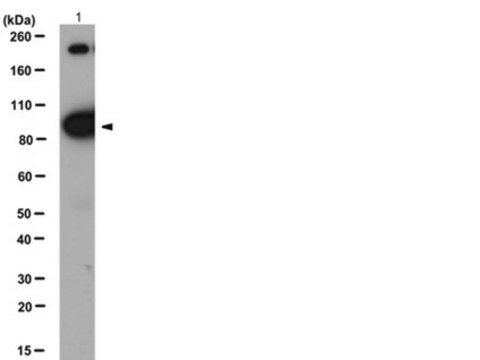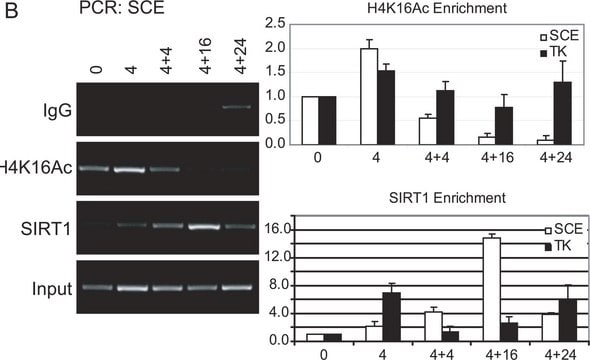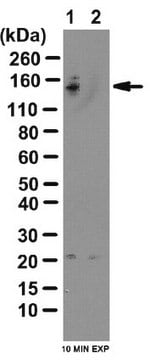07-303
Anti-phospho-Acetyl CoA Carboxylase (Ser79) Antibody
Upstate®, from rabbit
Synonyme(s) :
acetyl-CoA carboxylase 1, acetyl-CoA carboxylase-alpha, acetyl-Coenzyme A carboxylase alpha
About This Item
Produits recommandés
Source biologique
rabbit
Niveau de qualité
Forme d'anticorps
purified antibody
Type de produit anticorps
primary antibodies
Clone
polyclonal
Espèces réactives
canine, human
Réactivité de l'espèce (prédite par homologie)
bovine (immunogen homology), chicken (immunogen homology), rat (immunogen homology), mouse (immunogen homology), dog (immunogen homology)
Conditionnement
antibody small pack of 25 μg
Fabricant/nom de marque
Upstate®
Technique(s)
western blot: suitable
Numéro d'accès NCBI
Numéro d'accès UniProt
Conditions d'expédition
ambient
Modification post-traductionnelle de la cible
phosphorylation (pSer79)
Informations sur le gène
human ... ACACA(31)
Description générale
Spécificité
Immunogène
Application
Signaling
Insulin/Energy Signaling
Qualité
Western Blot Analysis: 1:500 dilution of this antibody detected endogenous phospho-Acetyl CoA Carboxylase (Ser79) in lysate from Lambda phosphatase-treated and untreated A375 cells.
Description de la cible
Liaison
Forme physique
Stockage et stabilité
Handling Recommendations: Upon receipt, and prior to removing the cap, centrifuge the vial and gently mix the solution.
Autres remarques
Informations légales
Clause de non-responsabilité
Vous ne trouvez pas le bon produit ?
Essayez notre Outil de sélection de produits.
En option
Certificats d'analyse (COA)
Recherchez un Certificats d'analyse (COA) en saisissant le numéro de lot du produit. Les numéros de lot figurent sur l'étiquette du produit après les mots "Lot" ou "Batch".
Déjà en possession de ce produit ?
Retrouvez la documentation relative aux produits que vous avez récemment achetés dans la Bibliothèque de documents.
Notre équipe de scientifiques dispose d'une expérience dans tous les secteurs de la recherche, notamment en sciences de la vie, science des matériaux, synthèse chimique, chromatographie, analyse et dans de nombreux autres domaines..
Contacter notre Service technique







